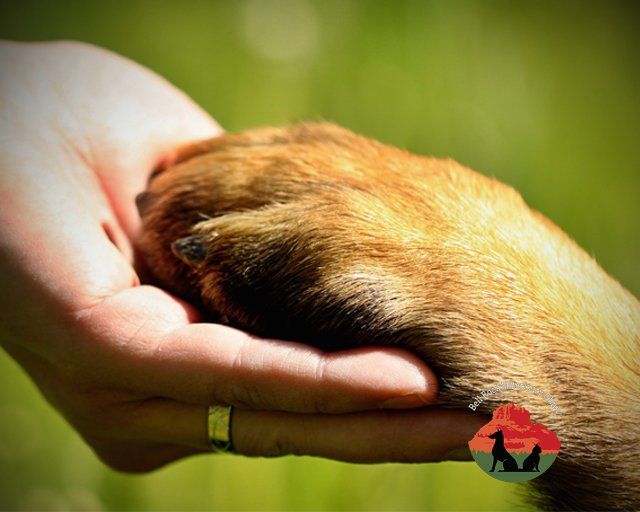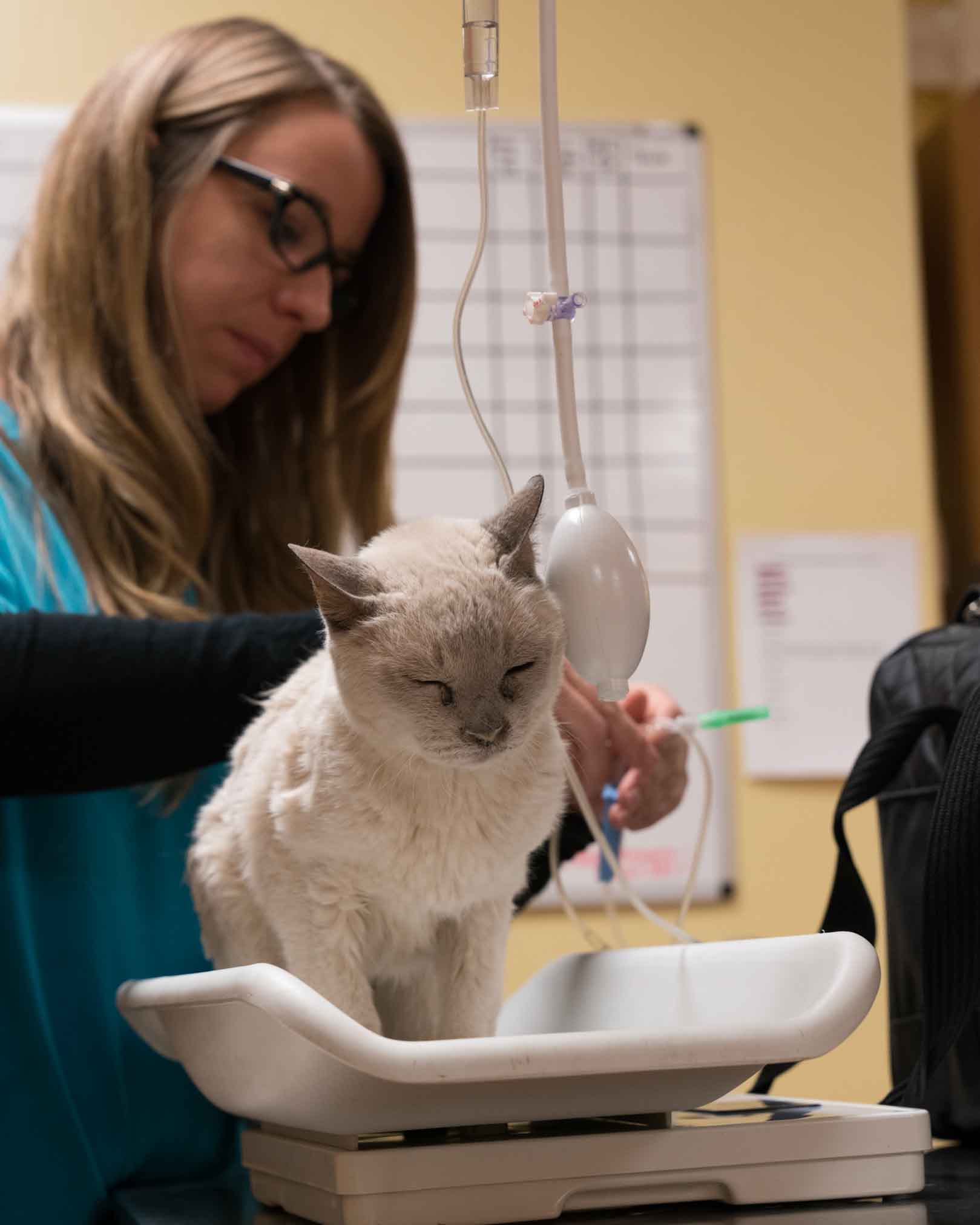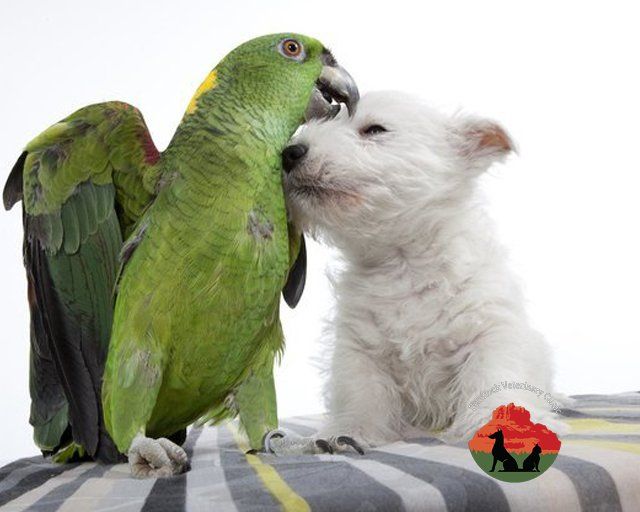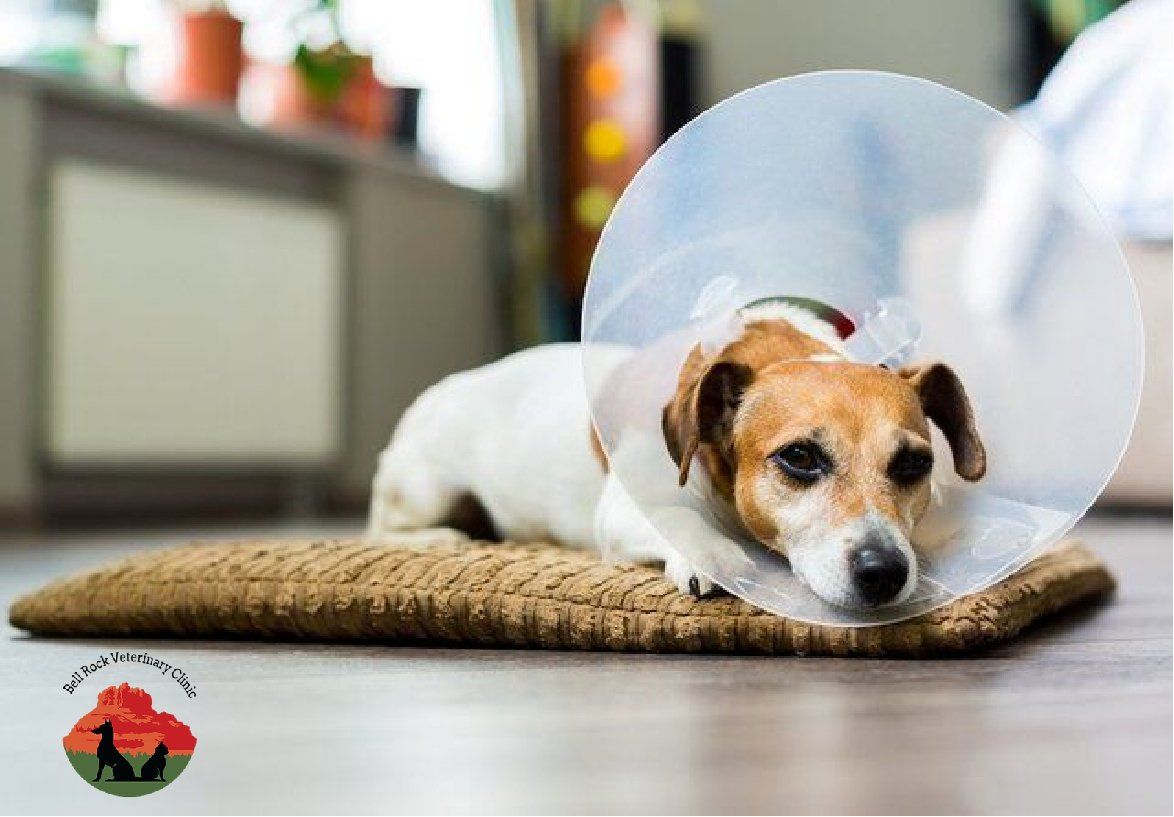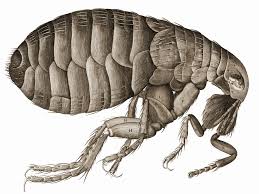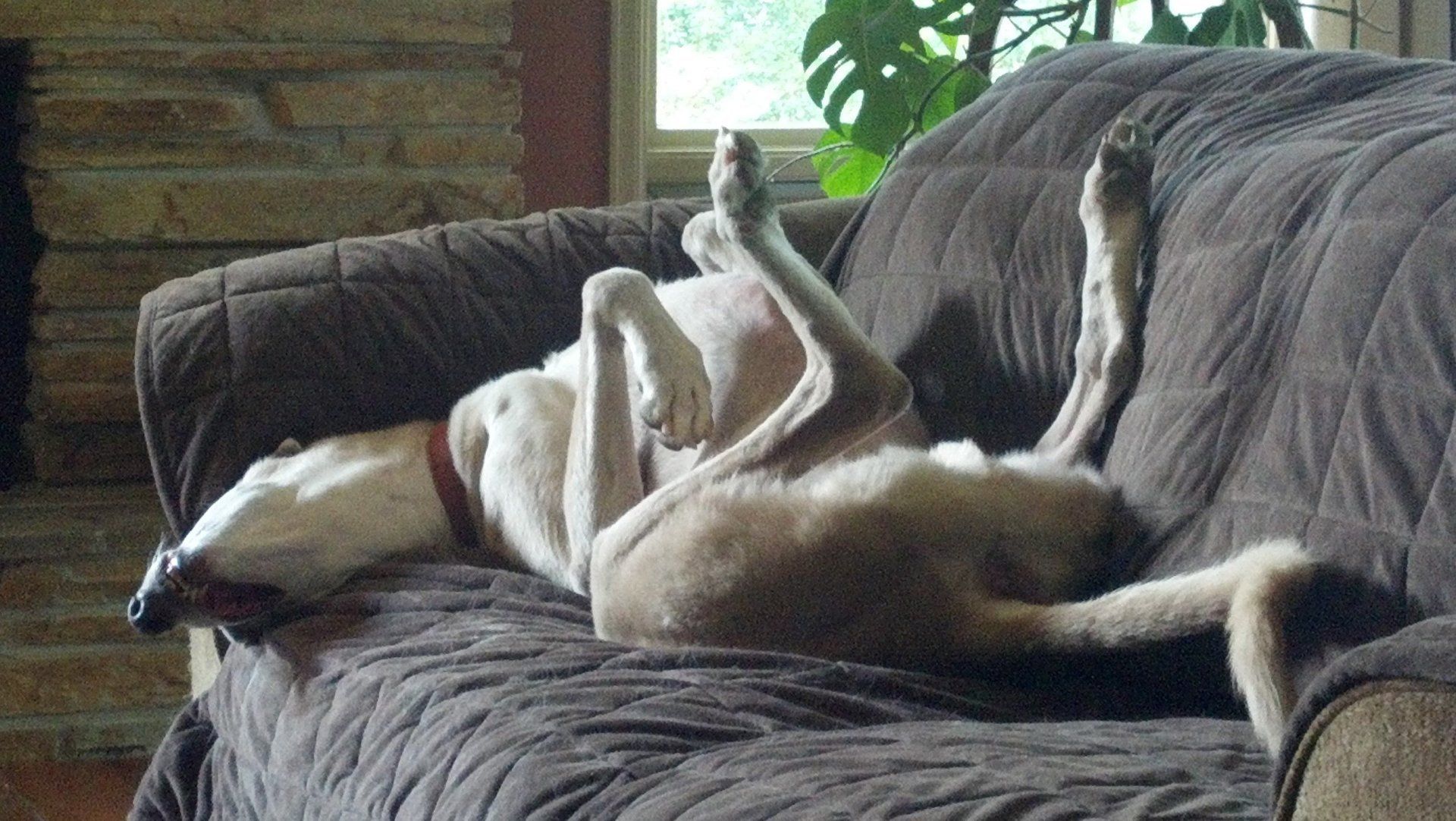The Importance of Feline Nutrition
Nutrition is one of the most important preventative measures we have to help our pets stay healthy. There are many diseases that we can treat with proper nutrition. With this month’s article I’d like to discuss feline nutrition in particular.
Cats are obligate carnivores. This means the physiology and anatomy of the cat are suited to eating a high protein, meat diet. Dry food is too high in carbohydrates and too low in protein for cats. Many pet parents feed a dry food believing that it is better for their feline’s teeth. This is simply not true. Dry food is not abrasive enough to clean or reduce the dental calculus from building up on the teeth.
Kidney disease, diabetes, and hyperthyroidism are diseases veterinarians see on a daily bases. They can also all be managed with proper nutrition. The progression of kidney disease is significantly slowed with a low phosphorus diet. Cats with kidney disease need protein to help maintain muscle mass, and protein restriction is generally not recommended depending on the affected feline. Nutrition is one of the most important factors when treating a cat with compromised kidneys.
The majority of diabetic cats can be weaned off insulin with appropriate diet changes. A high protein, low-carbohydrate diet has been associated with remission of diabetes in cats. This is achieved through a variety of canned foods or you can cook a at home diet as well. You can also cook for a cat with hyperthyroidism to help control the thyroid.
Cats with hyperthyroidism are in a elevated metabolic state. They need higher protein, higher fat, and a lower carbohydrate content than cats without hyperthyroidism. In addition to increasing the protein and fat, the iodine can be significantly reduced. With reduced iodine, the thyroid gland doesn’t have what it needs to make the thyroid hormones which create the elevated metabolic state. To achieve the low iodine diet, you can do a at home cooked diet or there is a prescription diet available. Most over the counter diets available are too high in iodine.
For all ailments there are medical therapies to improve your cat's quality of life and slow the disease progression. But without nutrition, the medical therapies are incomplete.
If you are interested in learning more about how nutrition can help your pet talk with your veterinarian.


